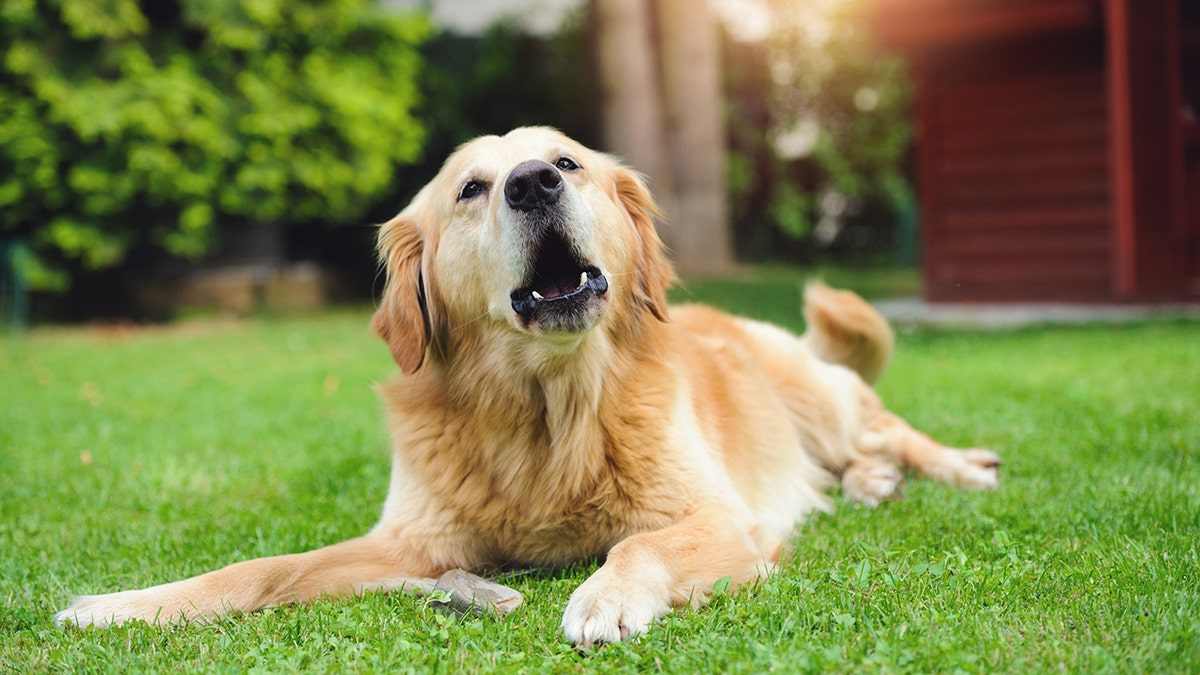Fox News Flash top headlines for March 30
Fox News Flash top headlines are here. Check out what's clicking on Foxnews.com.
Get all the latest news on coronavirus and more delivered daily to your inbox. Sign up here.
The coronavirus pandemic has upended nearly every facet of day-to-day life around the globe, but one charity is hoping this everyday activity can help flatten the curve — dogs sniffing.
British charity Medical Detection Dogs has partnered with Durham University and the London School of Hygiene and Tropical Medicine (LSHTM) on a medical trial to see if the crafty canines are able to sniff out people who have COVID-19.
"In principle, we’re sure that dogs could detect COVID-19," Dr. Claire Guest, CEO and co-founder of Medical Detection Dogs, said in a statement. "We are now looking into how we can safely catch the odor of the virus from patients and present it to the dogs."

(iStock)
The dogs looking for the novel coronavirus could be used in the same way they are used to look for other diseases, such as cancer, Parkinson's or other bacterial infections, as each disease has its own smell, the charity added. The dogs are able to "detect subtle changes" in skin temperature, so it's possible they could tell whether someone has a fever.
“The aim is that dogs will be able to screen anyone, including those who are asymptomatic and tell us whether they need to be tested," Guest explained. "This would be fast, effective and non-invasive and make sure the limited NHS testing resources are only used where they are really needed.”
Upon sniffing out the potential COVID-19 patients, the potential carriers would then be confirmed by an actual test to determine if they are indeed affected.
“We know that other respiratory diseases like COVID-19 change our body odor so there is a very high chance that dogs will be able to detect it," professor James Logan, head of Department of Disease Control at The London School of Hygiene & Tropical Medicine and director of ARCTEC, said. “Our previous work demonstrated that dogs can detect odors from humans with a malaria infection with extremely high accuracy – above the World Health Organization standards for a diagnostic."
The dog trials could be done in as few as six weeks, the BBC reports, assuming positive results. If that happens, rapid deployment could occur, said Durham University professor Steve Lindsay.
“If the research is successful, we could use COVID-19 detection dogs at airports at the end of the epidemic to rapidly identify people carrying the virus," Lindsay explained. "This would help prevent the re-emergence of the disease after we have brought the present epidemic under control.”
CLICK HERE FOR COMPLETE CORONAVIRUS COVERAGE
There are a number of tests used to detect COVID-19 that have been approved in recent weeks. Last week, the U.S. FDA approved one from Abbott Laboratories that can detect positive results in as few as five minutes and negative results in as few as 13 minutes.
As of Monday morning, more than 735,000 coronavirus cases have been diagnosed worldwide, including more than 143,000 of which are in the U.S., the most impacted country on the planet.

